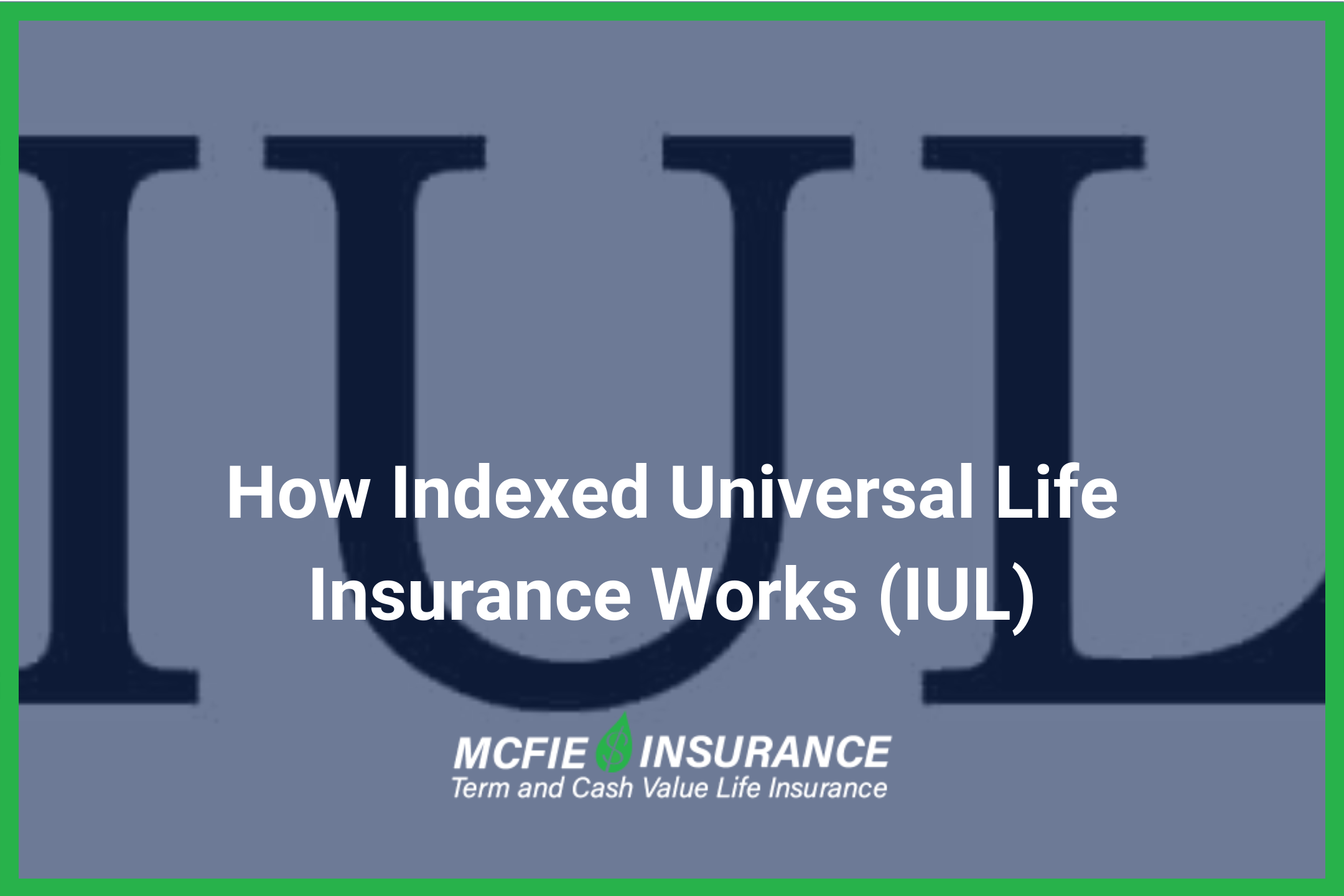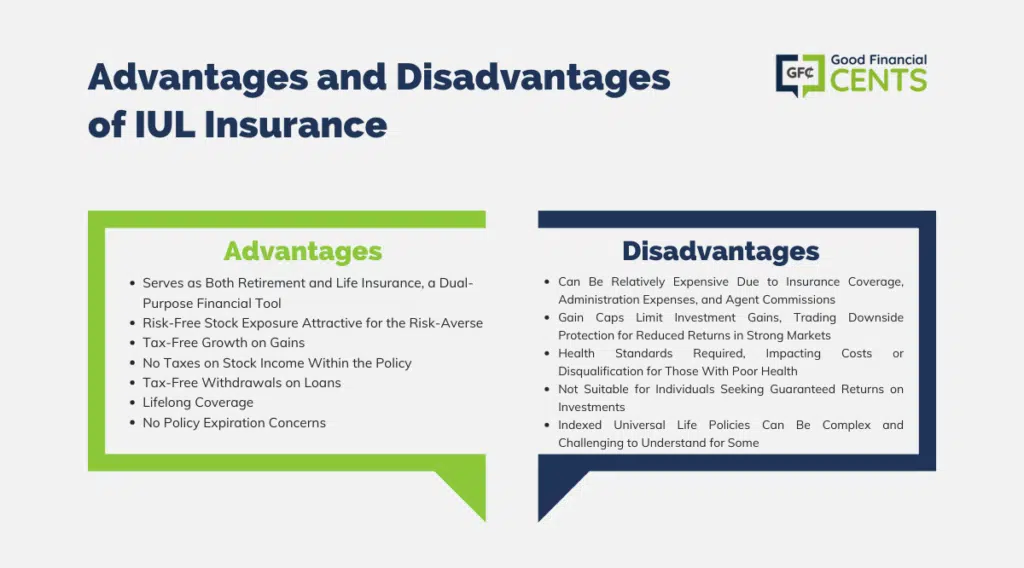All Categories
Featured
Table of Contents
Indexed Universal Life (IUL) insurance coverage is a kind of permanent life insurance coverage policy that incorporates the attributes of standard global life insurance coverage with the potential for money worth development linked to the performance of a stock market index, such as the S&P 500 (IUL growth strategy). Like other forms of permanent life insurance coverage, IUL supplies a survivor benefit that pays to the recipients when the insured passes away
Cash worth buildup: A part of the premium settlements enters into a cash money value account, which gains passion in time. This money value can be accessed or obtained against during the policyholder's lifetime. Indexing alternative: IUL plans provide the opportunity for cash money value growth based upon the efficiency of a securities market index.
What is included in Indexed Universal Life Death Benefit coverage?
Similar to all life insurance policy items, there is also a set of threats that policyholders must know prior to considering this sort of plan: Market threat: Among the main threats related to IUL is market risk. Since the cash worth development is linked to the efficiency of a securities market index, if the index chokes up, the money value might not grow as anticipated.

Sufficient liquidity: Insurance holders need to have a secure monetary situation and fit with the superior payment needs of the IUL policy. IUL allows for flexible costs settlements within specific limitations, but it's essential to preserve the policy to ensure it accomplishes its designated objectives. Rate of interest in life insurance protection: Individuals who require life insurance policy coverage and an interest in money value development may find IUL attractive.
Prospects for IUL need to be able to recognize the mechanics of the plan. IUL might not be the most effective choice for individuals with a high tolerance for market danger, those who focus on low-priced financial investments, or those with more immediate financial requirements. Consulting with a qualified financial consultant that can supply individualized advice is crucial before considering an IUL plan.
All registrants will certainly receive a calendar invitation and link to sign up with the webinar via Zoom. Can not make it live? Register anyway and we'll send you a recording of the presentation the next day.
Can I get Iul Policy online?
You can underpay or avoid premiums, plus you might be able to readjust your death benefit. What makes IUL various is the way the cash money value is spent. When you take out an indexed universal life insurance policy policy, the insurance provider offers a number of options to select at the very least one index to utilize for all or part of the cash money value account section of your plan and your death benefit.
Cash money worth, along with possible development of that value with an equity index account. A choice to allocate component of the money value to a fixed passion alternative.
Insurance policy holders can decide the percent designated to the dealt with and indexed accounts. The value of the chosen index is tape-recorded at the start of the month and compared to the value at the end of the month. If the index boosts during the month, rate of interest is contributed to the money value.
The 6% is multiplied by the cash value. The resulting passion is contributed to the cash money value. Some plans determine the index gains as the sum of the changes through, while other policies take approximately the day-to-day gains for a month. No passion is attributed to the money account if the index decreases instead of up.
How long does Iul Death Benefit coverage last?
The rate is established by the insurer and can be anywhere from 25% to even more than 100%. (The insurer can additionally alter the get involved price over the lifetime of the policy.) For instance, if the gain is 6%, the involvement rate is 50%, and the existing money value total is $10,000, $300 is contributed to the cash worth (6% x 50% x $10,000 = $300).
There are a number of advantages and disadvantages to think about before purchasing an IUL policy.: Just like typical universal life insurance policy, the insurance holder can increase their premiums or reduced them in times of hardship.: Quantities credited to the cash money value grow tax-deferred. The cash money worth can pay the insurance coverage costs, enabling the insurance holder to minimize or stop making out-of-pocket costs payments.
How do I apply for Guaranteed Indexed Universal Life?
Lots of IUL plans have a later maturation day than various other kinds of global life policies, with some ending when the insured reaches age 121 or even more. If the insured is still to life back then, plans pay out the survivor benefit (but not normally the cash money value) and the earnings may be taxable.

: Smaller policy face values do not provide much advantage over regular UL insurance policy policies.: If the index drops, no passion is attributed to the money value. (Some plans supply a low assured price over a longer duration.) Various other financial investment lorries utilize market indexes as a criteria for efficiency.
With IUL, the objective is to make money from higher activities in the index.: Since the insurer just gets choices in an index, you're not directly bought stocks, so you do not benefit when business pay dividends to shareholders.: Insurers fee fees for managing your cash, which can drain pipes cash value.
Why should I have Indexed Universal Life Insurance?

For a lot of people, no, IUL isn't much better than a 401(k) - IUL companies in regards to saving for retirement. Many IULs are best for high-net-worth people looking for ways to minimize their taxed revenue or those who have maxed out their various other retirement alternatives. For everyone else, a 401(k) is a much better financial investment car due to the fact that it doesn't lug the high fees and premiums of an IUL, plus there is no cap on the quantity you may make (unlike with an IUL policy)
, the revenues on your IUL will not be as high as a common investment account. The high price of premiums and costs makes IULs expensive and significantly less budget-friendly than term life.
Indexed global life (IUL) insurance policy provides money worth plus a survivor benefit. The money in the money worth account can make rate of interest via tracking an equity index, and with some usually assigned to a fixed-rate account. Indexed universal life plans cap how much money you can collect (usually at much less than 100%) and they are based on a potentially unstable equity index.
Who offers Indexed Universal Life Accumulation?
A 401(k) is a better option for that purpose since it doesn't bring the high fees and premiums of an IUL policy, plus there is no cap on the amount you may earn when invested. A lot of IUL policies are best for high-net-worth individuals looking for to reduce their taxable revenue. Investopedia does not supply tax obligation, investment, or financial solutions and guidance.
If you're taking into consideration buying an indexed global life policy, first speak with a financial advisor who can discuss the nuances and give you an accurate photo of the real capacity of an IUL policy. Make certain you understand just how the insurer will compute your rates of interest, earnings cap, and costs that might be examined.
Latest Posts
How Does Index Universal Life Insurance Work
Universal Insurance Near Me
Group Universal Life Cash Accumulation Fund